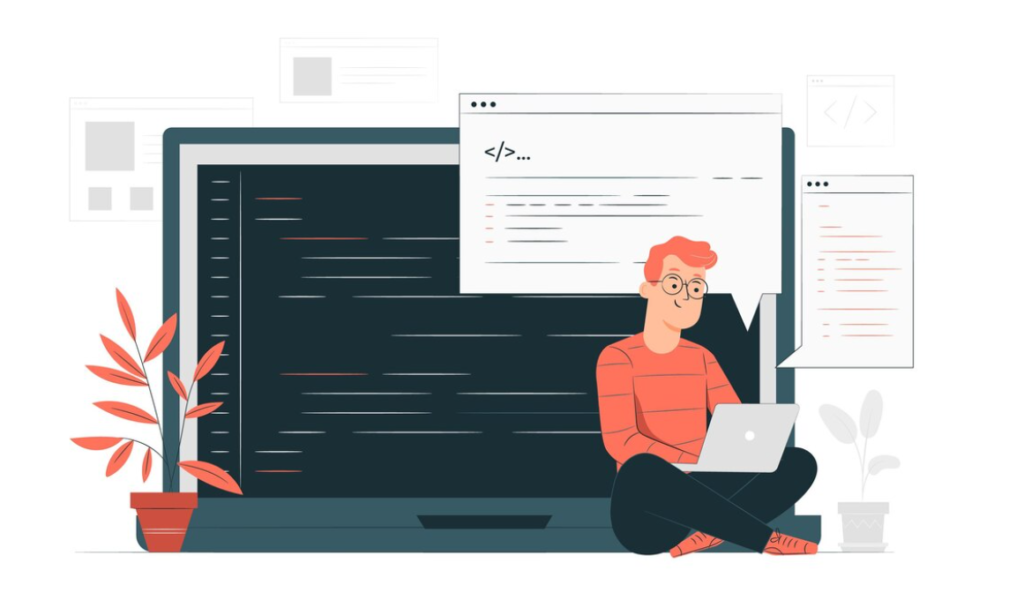Node.js has emerged as a crucial technology for web developers, empowering them to craft scalable, high-performing applications. For those contemplating delving into Node.js, one burning question often arises: How much time does it take to gain proficiency in this robust platform? The journey to mastering Node.js varies based on several factors, including your existing programming background, level of commitment, and the depth of expertise you aim to achieve. In this article, we’ll delve into the learning trajectory of Node.js and offer insights into the timeline it might entail to become adept in this technology.
Introduction to Programming and JavaScript Basics
For those who are just beginning their journey in programming or have limited exposure, it is essential to first understand the core principles of programming and the JavaScript language. This foundational knowledge is critical as Node.js operates on JavaScript, and a thorough comprehension of JavaScript is key to successful Node.js development.
- Estimated Time for Beginners: Achieving a robust understanding of JavaScript and fundamental programming concepts typically requires about 2 to 3 months for complete beginners.
Diving into Asynchronous Programming in Node.js
A hallmark of Node.js is its asynchronous capability, enabling it to manage multiple operations simultaneously without hindering the execution process. Gaining insight into asynchronous programming is pivotal for crafting scalable Node.js applications.
- Estimated Learning Time: Acquiring knowledge in asynchronous programming concepts is expected to take an extra 2 to 3 weeks.
Understanding Node.js Core Modules
Node.js is equipped with a collection of core modules that provide a wide range of functionalities. Becoming adept at leveraging these modules is crucial for proficient Node.js development.
- Learning Duration: It generally takes about 1 to 2 weeks to get comfortable with Node.js core modules, varying with individual learning speeds.
Creating Basic Node.js Applications
With a solid grasp of JavaScript, asynchronous programming, and the core modules of Node.js, the next step is to embark on developing simple Node.js applications. Engaging in such practical projects allows for valuable hands-on experience and solidifies the understanding of previously acquired knowledge.
- Project Development Time: The process of developing basic applications can span from 2 to 4 weeks, influenced by the project’s complexity.
Exploring Advanced Node.js Frameworks and Libraries
The Node.js ecosystem is teeming with an array of frameworks and libraries that can streamline the development process. Gaining proficiency in using notable frameworks such as Express.js, along with libraries like Socket.io, can dramatically elevate your efficiency and technical prowess in Node.js development.
- Estimated Learning Time: Delving into the intricacies of Node.js frameworks and libraries may require 1 to 2 months, contingent on the depth of understanding and expertise you wish to attain.
Integrating Databases and APIs for Comprehensive Applications
For the creation of sophisticated real-world applications, it’s crucial to master the interaction with databases and the integration of external APIs. Acquiring skills in database technologies, including MongoDB or MySQL, and managing RESTful APIs, is indispensable for enhancing your Node.js development toolkit.
- Time to Proficiency: Achieving competency in working with databases and API integration is expected to take about 2 to 3 weeks, depending on your learning pace and dedication.
Node.js Skill Development Strategies

Broadening Your Node.js Mastery
To excel in Node.js and its comprehensive ecosystem, it’s crucial to engage in continuous learning and practical application. Here are several strategies to effectively enhance and validate your Node.js capabilities:
Engage in Project Development
Initiate personal projects that spark your interest and challenge your current skill level. Opt for projects that encompass a wide range of Node.js functionalities, including but not limited to server-side processing, database operations, and API usage. Real-world projects not only solidify your understanding but also enrich your practical experience.
Utilize Online Learning Platforms
Platforms such as Codecademy, LeetCode, and HackerRank offer targeted Node.js exercises and challenges. These resources are invaluable for honing your coding skills, enhancing problem-solving capabilities, and improving coding efficiency through immediate feedback.
Dive into Documentation and Online Resources
Frequent consultation of Node.js’s official documentation and engaging with tutorials across various platforms (including Medium, YouTube, and dev.to) can significantly broaden your knowledge base. The Node.js official site (https://nodejs.org) is a treasure trove of guides, API documentation, and practical examples.
Contribute to Open Source Projects
Active participation in open-source Node.js projects on platforms like GitHub provides a unique opportunity for collaboration, gaining new insights, and receiving constructive feedback from seasoned developers.
Develop and Share Your Own Modules
Designing your own Node.js modules and distributing them via NPM (Node Package Manager) serves as an excellent method to demonstrate your skills and contribute to the Node.js community’s growth.
Network at Meetups and Conferences
Attending Node.js-centric meetups and conferences is an excellent avenue for networking with peers, absorbing knowledge from industry experts, and staying abreast of the latest trends and advancements within the Node.js landscape.
Collaborate Through Pair Programming
Pair programming with fellow developers can offer new perspectives, facilitate the exchange of coding strategies, and provide immediate feedback, enhancing the learning experience.
Participate in Code Reviews
Engaging in the code review process, whether by scrutinizing others’ work or submitting your own code for review by more adept developers, is instrumental in learning best practices, spotting potential issues, and elevating code quality.
Experiment with Various Libraries and Frameworks
Experimentation with a diverse array of Node.js libraries and frameworks, such as Express.js, Socket.io, and Sequelize, enriches your understanding of the Node.js ecosystem and its versatile capabilities.
Analyze Source Code of Leading Projects
Examining the source code of well-regarded Node.js projects can offer deep insights into effective project structure, problem-solving techniques, and established coding patterns, thereby enhancing your development proficiency.
Getting Started with Node.js: A Primer for Beginners
Are you wondering if prior programming knowledge is necessary to embark on the journey of learning Node.js? The answer is no, it’s not a strict requirement, but having a foundational understanding of programming can certainly expedite your learning process.
Node.js stands out as a robust runtime environment that executes JavaScript code on the server side, empowering developers to craft scalable and efficient web applications. For those completely new to programming, acquainting yourself with fundamental concepts such as variables, data types, loops, conditional statements, and functions will serve as a solid groundwork before delving into Node.js specifics.
If you’re already acquainted with another programming language, transitioning to Node.js will be smoother due to JavaScript’s resemblances to other languages. In this case, focus on grasping the asynchronous nature of Node.js and its event-driven architecture, which form the backbone of its functionality.
Fortunately, an abundance of online resources, tutorials, and offline courses cater to learners of varying skill levels, enabling you to choose a learning path that aligns with your needs and pace. Remember, regular practice is the key to mastering any programming language, so don’t hesitate to write and experiment with code consistently.
Node.js: Gateway to Tech Careers

Wondering if learning Node.js can lead to employment opportunities? The answer is a resounding yes! Acquiring skills in Node.js can unlock a plethora of job prospects in the tech industry. Node.js, renowned for its prowess as a runtime environment for executing server-side JavaScript code, enables developers to create scalable and effective web applications, rendering it an invaluable asset in today’s job market.
Here are a few potential job roles you can explore after mastering Node.js:
| Role | Core Responsibilities | Key Technologies & Concepts |
|---|---|---|
| Node.js Developer | Building server-side applications, APIs, microservices using Node.js. | Node.js |
| Full-stack Developer | Integrating server-side (Node.js) with front-end technologies for complete web application development. | Node.js, HTML, CSS, JavaScript |
| Backend Developer | Focusing on server-side logic, database management, leveraging Node.js’s non-blocking, event-driven architecture. | Node.js, Database Technologies |
| Web Developer | Creating real-time web applications, dynamic websites using Node.js for responsive, feature-rich experiences. | Node.js, Front-end Technologies |
| DevOps Engineer | Utilizing Node.js for scripting, automation in DevOps practices. | Node.js, CI/CD Tools, Automation Tools |
| Software Engineer | Employing Node.js in various software engineering tasks, especially in server-side development. | Node.js, Software Development Methodologies |
| Application Developer | Using Node.js to develop desktop and mobile applications with frameworks like Electron and React Native. | Node.js, Electron, React Native |
| Cloud Developer | Building cloud-based applications, microservices using Node.js on platforms like AWS, Google Cloud, Microsoft Azure. | Node.js, Cloud Platforms (AWS, Google Cloud, Microsoft Azure) |
Conclusion
In conclusion, the duration required to grasp Node.js hinges on several factors, including one’s existing programming background, commitment level, and the complexity of the material being studied. For beginners, achieving proficiency and crafting meaningful applications could typically span from 6 to 9 months. However, those with prior programming knowledge may expedite this process.
It’s crucial to acknowledge that learning Node.js is an ongoing journey. Keeping pace with its advancements necessitates a commitment to exploring new functionalities and adhering to best practices. Active involvement in real-world projects, engaging with developer communities, and consistently honing application-building skills are pivotal in accelerating learning and becoming a proficient Node.js developer.
